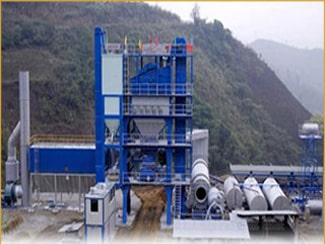India's Top Mobile Asphalt Plant Manufacturer | Mobile Asphalt Hot Mix Plant Supplier at Best Price
High-quality asphalt is needed in road construction projects to make the roads look durable, safe, and smooth to drive on. Mobile Asphalt Plant is crucial in this process and offers independent and synthetic production of asphalt to various construction sites. As a contractor, construction firm, or infrastructure developer, it is possible to make better purchasing and operating choices by learning how mobile asphalt plants operate.
This guide will cover all the information you should know about Mobile Asphalt Plants, such as their working principle, benefits, uses, and identification of the most suitable plant to fit your requirements.

What is a Mobile Asphalt Plant?
A Mobile Asphalt Plant is a stationary asphalt mixing plant that is used to make hot mix asphalt (HMA) onsite. Mobile asphalt plants are unlike stationary asphalt plants that are planted at a single point but can be easily transported to several construction sites.
All these plants include all the necessary components mounted on a trailer or skid, including:
- Aggregate feeders
- Drum mixer or batch mixer
- Bitumen storage tank
- Hot aggregate elevator
- Control system
This type of mobility enables construction businesses to save on transportation costs, time, and fresh asphalt production at every project site.
The mobile asphalt plant working process is the same as that of a stationary plant, but it is made in such a way that it can be assembled and disassembled very quickly. The following are the steps that can be followed:
- Aggregate Feeding:
The crushed stones, sands, and gravel are loaded into individual feeders. The quantity of every aggregate is controlled according to the asphalt mix design.
2. Heating & Drying:
The aggregates are dumped into a drum/ dryer, in which the aggregates are roasted to dry out the moisture. This ensures that there is homogenization of asphalt.
3. Mixing with Bitumen:
It is a mixture of Bitumen (asphalt binder) and filler materials, which are heated and mixed in the mixing drum. The product is hot mix asphalt that can be used instantly.
4. Storage & Discharge:
The completed asphalt is kept in a temporary silo or emptied straight into trucks that transport the asphalt to the paving site.
5. Quality Control:
The advanced mobile asphalt plants are fitted with automatic control systems to check on the temperature, ratio of the mixing and production capacity, and to ensure the quality of the asphalt remains consistent.
Key Features of Mobile Asphalt Plants
- Portability: It bears a skid or a trailer, which makes it movable.
- High Efficiency: Optimized drum or batch mixing system.
- Convenient Control: PLC or automated control panel.
- Environmental Compliance: Dust collector and low emissions provision.
- Flexible Capacity: It has the flexibility with a capacity of 20-80 TPH.
Key Benefits of Mobile Asphalt Plants
- Easy Transportation: Does not require a large-scale setup to be transported to other locations.
- Fast Assembly: Takes minimum time to assemble as compared to stationary plants.
- Cost-Effective: Saves on transportation expenses of transporting asphalt.
- Uniform Quality: Automated plants ensure consistency of asphalt mix.
- Strong Construction: It is constructed to meet very heavy construction requirements.

